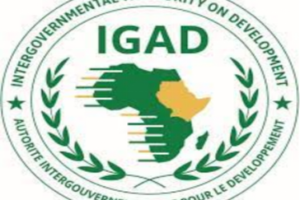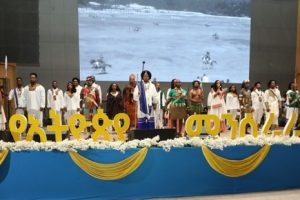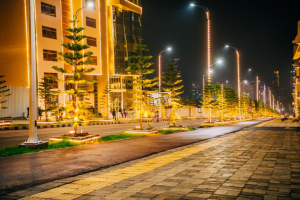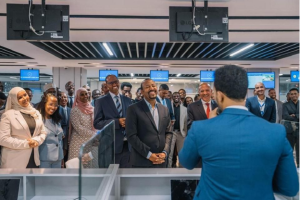BY FITSUM GETACHEW
While we celebrate the sixtieth anniversary of the OAU/AU there must be some considerations to make regarding this famous African body. We must look deeply into what the founding fathers thought when they formed this organization and what has it developed to being. Can we say that if any of the founding fathers came here today they would be satisfied with what they see and what their organization has come to be? What were the intentions of those far sighted African leaders who just saw their continent develop to being a group of nations that just managed to liberate themselves from the dominion of colonizers?
The context of that Africa is of course completely different to the one reigning today. There were thirty three independent African countries when the first founding conference of the heads of state and government of African free countries was held in Addis Ababa on May 25, 1963. It was then of course considered as a ground breaking event that finally had managed to bring together leaders of African nations with different languages, cultural backgrounds, traditions and religious beliefs.
Every country had its own historical background except that some of them were freed from English colonization, others from the French colonization and still others from Italian, Belgian, German and Portuguese dominion and in each of these groups of colonies there were similarities in their cultural background because of the common tradition of the countries they were administered by. For instance Ghana and Nigeria had some common traits because of the fact that they were under the influence of the British culture as there were similarities between Tunisia and Algeria former French colonies or between Mozambique and Angola former Portuguese colonies etc.
The leaders of all the independent countries were hoping to establish an organization that would cater for the needs of all Africans independently of the kind of cultural or political influence under which they were put for decades. They wanted to create one common African identity breaking totally from the past and then aspire to truly liberate their people from the imperialistic attitude of the colonizers.
Hence there was the challenge of the search for a new identity that could break from years of alien dominion and in that sense the tasks of those leaders were daunting. The kind of years of cultural dominion was so deep that between Africans to adopt a common language was the first barrier. The leaders had to be truly visionaries and farsighted to be able to imagine a continent which could be really free of foreign influence particularly that of the former colonial master.
One of the first tasks of the body that those leaders were to face and achieve was to create an African identity that could be felt by all Africans in the same way without making reference to their former colonizers. It was really very difficult to find out the impact of the colonizers with regards to the psyche of all Africans that were under the dominion of the colonizers and to reacquire their full sense of dignity and pride would take a lot of time. Africans had to show that they could manage their own affairs on their own without the ‘foreign baby sitters’. They were to be tested showing to the world that Africans can administer their own affairs.
The OAU/AU in this sense had a huge responsibility because then the leaders of Africa would sit down together and face the challenges these countries face and seek common solutions. Instead of facing the problems individually in this vast and competitive world, they realized that it would have been better and more practical to share ideas and resources and leadership and seek solutions together. In the beginning there were only thirty three countries and now they are fifty five. The numbers have increased but has there been substantial improvement in the lives of Africans after the continent has been declared completely free is what many have in their mind.
The leaders who founded the OAU had that dream that one day all African countries would be free and independent and Africa would acquire its dignity and take part in international affairs independently without being sidelined or discriminated. They realized that the continent had immense natural resources and it was a matter of years before the human resources would be available to match with the untapped natural resources and the first step would be to be able to act and decide in unison, freely without the interference of the foreign powers.
In the immediate years of the formation of the OAU all the talk was how and when all dependent countries under foreign dominion or under minority white supremacist regimes would set themselves free, and every assistance was to be made available to them so that they achieved their independence.
The African leaders met frequently to study the progress in this regard and acted in unison in the end achieving their objective of liberating every inch of African territory. But they soon came to realize that there were to be rivalries among the leaders of liberation movements who then became independent and the issue of who should lead a certain country was to be a huge challenge resulting in animosities between groups of the same country.
Africans were encouraged to believe in terms of their tribes or ethnic origin rather than the bigger picture of being an African and this was definitely one of the remnants of colonization that tried to exploit the differences among populations in a country.
In every African country there were indeed scores of people who belonged to various tribes or clans or extended families and if these differences were exploited politically as it was to happen more often than not, Africans suddenly found themselves in a deep abyss from where they could not come out victorious. May be these were some of the issues the founding fathers of the OAU did not consider seriously as they were more inclined to think of the bigger picture.
But later on it was to be a critical issue that would still divide practically every African country and keep it busy negatively rather than be considered as an asset or a beauty that diversity should not necessarily mean enmity or animosity. And yet fighting’s and conflicts were to burst in various parts of Africa threatening the very legitimacy of the continental body.
May be for some it was too farfetched to think of African unity when every single country was about to be engulfed in civil war or fractures that would threaten the very integrity of the country. For instance in Nigeria we saw the case of Biafra that resulted in years of combat and destruction until the federal government had the upper hand and overwhelmed the secessionists. Similar episode seemed to happen in the Democratic Republic of Congo when the Katanga issue exploded and fierce fighting took place with the UN having intervened and tried to quell the unrest.
Unfortunately, throughout the sixty years existence of the OAU/AU, Africa has never been free from external influence nor has it been free from conflicts of various sorts, some only skirmishes, others outright wars that became cause for immense casualties and destruction. Even in our own case we remember the war between Ethiopia and Eritrea and the conflict in South Sudan, the ones that are still ongoing in Somalia and the DRC and many other hotspots in a continent that is still afflicted by immense challenges of livelihoods of millions of poor Africans who live in extremely dire circumstances in a world that is full of resources, in a continent that abounds with natural resources that are even sold to others generating huge incomes and yet we will have to turn to what kind of leadership African states have had throughout the years.
Many have said for the common man and woman the independence of Africa from colonial administration has not brought any dividends that could be quantified in terms of changing their lives for the better. At times they have even got worse off as a few people who lead the country monopolize not only the resources but also the political power subjecting those who were not wanted as non citizens and here the issue of good governance and that of democratic institutions has been continuously raised. People ask ‘has the OAU/AU managed to do anything concrete to alleviate the suffering of these people emarginated in their own countries’? It is not possible to believe that this is one of the dreams of the founding fathers of the continental body.
According to some observers, the ‘principle of sovereignty’ and hence ‘non interference in the internal affairs of other countries’ may have prevented the organization from intervening in any capacity, but nowadays when human rights issues emerge in any African nation we see that the AU is forced to distance itself from such regimes and possibly urge others as well not to welcome it in their tables by way of sanctions.
The issue of coup d’etats has been one of the thorny ones the continent had to face for years and is still a huge obstacle to the continent’s drives towards democracy. In this regard the success of the continental body is questionable because it has not managed to stop a single coup d’etat and army leaders continue to exert their force on civilian administration. Here there is a lot to do not only for the AU but also for the single countries intellectuals, civil societies, religious leaders and professional associations so that undemocratic practices be denounced and abandoned by all and that Africans deserve to be administered by a body that they have chosen freely in free, fair and transparent elections. But this is still a dream as we continue to see the bullet overwhelming the ballot.
Today as we speak there is a huge crisis in Sudan because of rivalries among the armed bodies of the nation, and sadly the country of forty five million people is in deep trouble. Many ask ‘What has the AU done to prevent this problem from happening or once it has begun what has it done to stop it?
Africa will continue be afflicted by several kinds of crisis as long as the economic woes of the peoples are not addressed because in the end it is poverty that leads to conflicts because of greedy politicians who thrive on the sufferance of the masses of their peoples. There does not seem to exist any light for the moment and the darkness in the tunnel is still thick. What would the founding fathers of the OAU say when they see the current situation of the continent for which they were ready to sacrifice their lives?
The Ethiopian Herald May 25/2023





